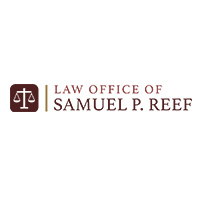Norwood Bankruptcy & Debt Lawyer, Massachusetts
Samuel P. Reef
✓ VERIFIEDCar Accident, Bankruptcy, Divorce, DUI-DWI
Samuel Reef is a practicing lawyer in the state of Massachusetts. He received his J.D. from Suffolk University Law School in 1994. He currently works ... (more)
Brian F. Hogencamp
Other, Lawsuit & Dispute, Consumer Rights, Bankruptcy & Debt
Status: In Good Standing Licensed: 23 Years
Brittani P. Mulholland
Occupational Safety & Health, Insurance, Bankruptcy, Medical Malpractice
Status: In Good Standing
Catherine Becker Good
Lawsuit & Dispute, Divorce & Family Law, Criminal, Bankruptcy & Debt
Status: In Good Standing Licensed: 36 Years
Christopher G. Timson
Industry Specialties, Business, Bankruptcy & Debt
Status: In Good Standing Licensed: 36 Years
Daniel Joshua Werner
Health Care Other, Family Law, Civil Rights, Credit & Debt
Status: In Good Standing


